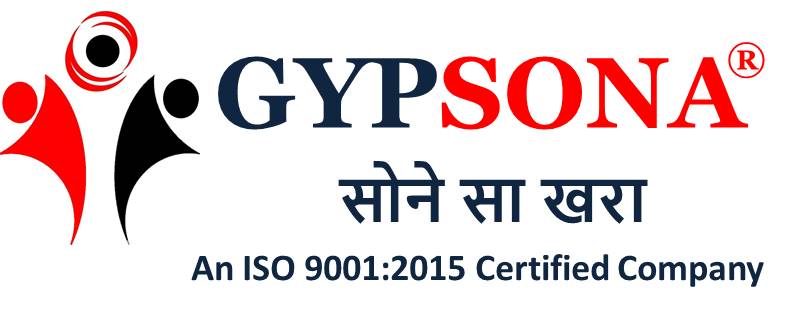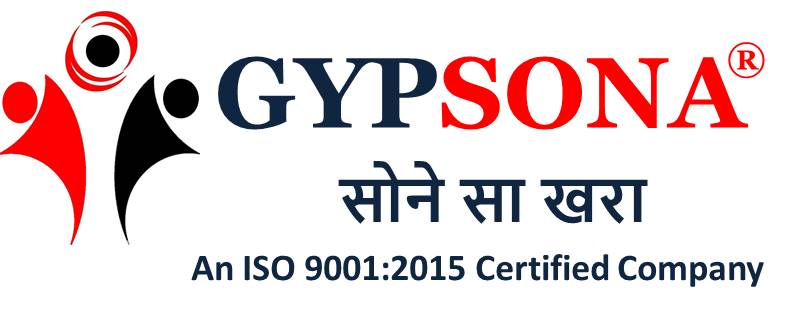11 Dec Pioneering Quality and Innovation in India’s Agriculture
Agriculture is the heartbeat of India. Farmers are always searching for ways to improve their soil. One essential tool in their kit is gypsum. This natural mineral improves soil structure and fertility. But quality matters. That’s where agriculture gypsum manufacturers come in. They turn raw gypsum into a refined product that supports better crop yields. In this article, we’ll explore what an agriculture gypsum manufacturer does, how they use modern technology to create quality products, and why their work is vital for sustainable farming in India.
What Is Agriculture Gypsum?
Agriculture gypsum is a natural mineral rich in calcium and sulfur. Farmers have used gypsum for many years. Its benefits include:
- Improving Soil Structure: Gypsum helps break up compacted clay, making it easier for roots to grow.
- Enhancing Water Retention: By improving the soil’s structure, gypsum helps the soil hold water for longer periods.
- Reducing Soil Erosion: It minimizes the loss of soil nutrients during heavy rains.
- Balancing Soil pH: Gypsum can help neutralize overly acidic soils.
Because of these benefits, gypsum is a trusted amendment for improving crop health and soil quality. It acts like a nutritional booster, helping the soil deliver essential elements to growing plants.
The Role of an Agriculture Gypsum Manufacturer
An agriculture gypsum manufacturer is much more than a simple producer. They are experts in processing gypsum to meet the needs of farmers. Their job involves:
- Sourcing High-Quality Raw Gypsum: Quality starts at the source. Manufacturers select the best raw materials.
- Processing and Refining: Advanced techniques ensure that the gypsum is purified and processed. This step is crucial for removing impurities.
- Quality Control: Manufacturers use modern technology to test each batch. This guarantees consistency and reliability in every shipment.
- Eco-Friendly Practices: Many manufacturers now integrate sustainable practices. They use green additives and methods that reduce environmental impact.
When farmers receive a product from a trusted manufacturer, they know it will perform well in the field. This reliability can make a big difference in crop productivity and soil health.
Modern Manufacturing Techniques
Today’s manufacturers use state-of-the-art techniques to produce high-quality agriculture gypsum. Here are some key methods they employ:
Controlled Processing
Manufacturers have adopted controlled processing methods. This means that every step—from grinding to mixing—is carefully monitored. Such precision ensures that the final gypsum product is uniform. Uniformity is vital for consistent performance across different fields.
Eco-Friendly Additives
Modern production isn’t just about quality; it’s also about sustainability. Many manufacturers now use eco-friendly additives. These additives help enhance the natural properties of gypsum. They can improve water retention or support a controlled release of nutrients in the soil. It’s like adding a secret ingredient that makes the product even more beneficial.
Real-Time Quality Monitoring
Technology has changed the game for quality control. With sensors and automated systems, manufacturers can monitor the production process in real time. If any inconsistencies arise, they are corrected immediately. This digital oversight ensures that every bag of gypsum meets high industry standards.
Customization for Local Needs
Not all soils are the same. A good manufacturer understands this. They offer customized formulations to address specific soil challenges. For instance, a blend tailored for the heavy clay soils of Punjab may differ from one designed for the sandy soils in Rajasthan. This level of customization means that farmers get exactly what they need for their unique conditions.
Benefits of High-Quality Agriculture Gypsum
Using quality gypsum can transform a farm. Here are some of the benefits that farmers see:
Improved Soil Health
High-quality gypsum improves the structure and fertility of the soil. This makes it easier for roots to access water and nutrients. Healthier soil naturally leads to stronger, more productive crops.
Better Water Management
In regions where water is scarce, managing moisture is critical. Gypsum helps soil retain water during dry periods. It acts like a sponge, absorbing and slowly releasing moisture to the plants.
Reduced Soil Salinity
In many parts of India, soil salinity is a major problem. Excess salts can inhibit plant growth. Gypsum helps to displace sodium ions, reducing soil salinity. This process makes the soil more hospitable for crops.
Consistency and Reliability
When farmers work with a trusted agriculture gypsum manufacturer, they receive a product that works as promised. Consistency in quality means that every application will yield similar benefits. This reliability is like having a dependable friend who always delivers on their promises.
Real-World Examples and Analogies
Let’s bring these concepts to life with a few examples and analogies.
Case Study: Transforming a Farm in Punjab
In Punjab, a group of progressive farmers recently switched to a high-quality agriculture gypsum product from a trusted manufacturer. They mixed the gypsum with their regular soil treatments. Over the season, they observed noticeable improvements. The soil became looser, water retention improved, and the crops grew taller. One farmer said it was like switching from an old, worn-out tool to a modern, efficient one. The results were clear: better yields and a healthier soil ecosystem.
Everyday Analogy
Think of your soil as a sleeping giant. When you add high-quality gypsum, it’s like gently waking that giant up. The nutrients in the soil become more available, and the plants respond by growing stronger. Another way to look at it is to compare it to cooking. Imagine making a delicious meal. Using quality ingredients makes all the difference. A chef carefully selects each spice and herb to create a perfect balance of flavors. Similarly, a good agriculture gypsum manufacturer ensures that every batch of gypsum has just the right mix of properties to benefit the soil.
The Importance of Trust and Quality
Trust is built on quality. Farmers depend on reliable products to secure their livelihoods. When an agriculture gypsum manufacturer consistently delivers quality, it builds a reputation over time. This trust is essential, especially in a field where even small variations can affect crop health.
A trusted manufacturer also offers ongoing support. They may provide guidance on how best to apply the gypsum or offer customized solutions based on local soil conditions. This level of customer service is as important as the product itself.
Future Trends in Agriculture Gypsum Manufacturing
The future for agriculture gypsum manufacturers is bright. Several trends are shaping this industry:
1. Greater Emphasis on Sustainability
Sustainability will continue to be a major focus. Manufacturers are constantly exploring ways to make their processes greener. Expect more innovations that reduce energy consumption and lower the carbon footprint of production. This focus not only helps the environment but also appeals to an eco-conscious farming community.
2. Increased Technological Integration
Technology is set to play an even larger role in manufacturing. Automation, real-time monitoring, and data analytics will become the norm. These advancements will further improve product consistency and quality. Imagine a future where every step of the production process is optimized by smart technology.
3. Customization and Tailored Solutions
As research in soil science progresses, manufacturers will likely offer even more customized products. Tailored gypsum formulations can address specific regional challenges. Whether it’s combating soil salinity in Gujarat or improving water retention in arid areas, customized solutions will be a game changer.
4. Expanded Collaboration with Farmers
Successful manufacturers will build closer ties with the agricultural community. By collaborating directly with farmers, manufacturers can better understand local challenges. This collaboration leads to products that truly meet the needs of the end-user. In many ways, it’s a partnership that benefits everyone.
Conclusion
Agriculture gypsum manufacturers play a crucial role in modern farming. They transform raw gypsum into a product that improves soil health, enhances water retention, and boosts crop yields. By using advanced production techniques and eco-friendly practices, these manufacturers ensure that every batch of gypsum meets the highest standards.
For farmers across India, quality gypsum is more than just an input. It’s a tool for sustainable growth. With improved soil structure and better water management, crops thrive and farms become more resilient. Real-world examples from regions like Punjab show the transformative impact of working with a trusted manufacturer.


No Comments